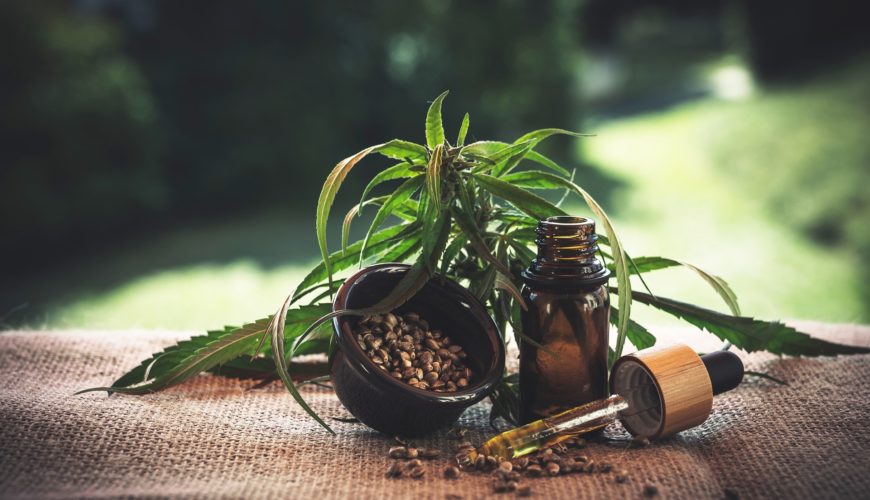Today, CBD can be found in various forms, such as balms, oils, capsules, and e-liquids. One of the most popular formats is oil. Let’s discuss what it is and what types of CBD extracts are out there on the market.
CBD oil is a substance that contains cannabinoids. It is an ingredient and product of a cannabis plant, but it is not psychoactive and does not cause addiction or hallucinations. CBD oil has health-promoting properties that can help counteract certain physical and mental discomfort.
The types of CBD

Full-Spectrum CBD Oil
When CBD oil is called a full-spectrum, it means that the product contains other cannabinoids as well. This oil may contain residual amounts (0.2% or less) of THC, as well as cannabinol (CBN) and tetrahydrocannabivarin (THCV). Some studies have shown that full-spectrum CBD may be more effective due to its synergistic reactions with the terpenes and minor phytocannabinoids present. Keep in mind that the residual amount of THC in the full-spectrum of CBD oils may compromise the drug test.
What are terpenes?

Terpenes are a class of volatile hydrocarbon compounds produced by Cannabis Sativa as well as most other plants. Terpenes evaporate quickly at room temperature, and our noses are very sensitive to them.
Terpenes can also have a substantial effect on our bodies. Humans have used them for thousands of years in a treatment known as aromatherapy. For example, the aroma of citrus fruits is produced mainly by a combination of limonene and pinene, which is thought to lift your spirits.
Some common terpenes include linalool, myrcene, caryophyllene, limonene, terpinolene, citronellol, and camphene. The traditional use of these terpenes and others varies, but they include antibacterial, antifungal, antioxidant, and anti-inflammatory.
Some terpenes may act as neurotransmitters. They may act as serotonin uptake inhibitors, enhance norepinephrine activity, and increase dopamine activity, which is known to have antidepressant effects. More importantly, terpenes also act on cannabinoid receptors and are known to modify the effects of cannabinoids.
An untreated cannabis extract contains terpenes, as well as other cannabinoid compounds such as CBD. Since it preserves the natural balance of cannabinoids and terpenes found in the original plant, we call these products full-spectrum oils.
Broad-Spectrum CBD Oil
Broad-spectrum CBD oil and full-spectrum CBD oil have much in common. Full-spectrum CBD oil, as mentioned earlier, preserves the initial concentrations of cannabinoids and terpenes contained in the raw hemp extract. Broad-spectrum CBD oil also includes levels of beneficial cannabinoids and terpenes, but it has all trace amounts of THC removed, making it ideal for those who do not want any THC in their CBD products.
CBD Isolate

This type of oil is entirely free from THC and all other cannabinoids and terpenes. To make a CBD isolate, the crystalline CBD is diluted with a carrier oil such as hemp seed or coconut oil to produce a CBD isolate oil. It can be used in many ways, starting with sublingual use and transforming into a cooking ingredient when you make a salad dressing.
CBD can also be isolated and purified. Pure CBD is known as CBD isolate. Absolute and at room temperature, cannabinoids are solid crystals. Purified cannabinoids are colourless and odourless. CBD Isolate can be used directly or as an additive in other products such as food and beverages; however, it does not contain useful terpenes or other cannabinoids found in nature in the plant.
Now that you are informed about the types of CBD extracts, you can make an informed decision of which type to opt for. Make sure to do your research and speak to your doctor before trying out any CBD products.




